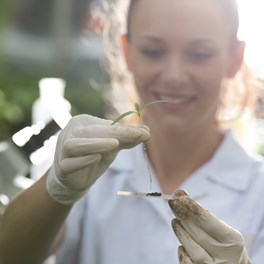Agrijobs Blog

Hey Graduates! Looking for a great role in agriculture. Here are some tips.
Friday, November 3, 2023
1. How to get started?
Do you have an idea of what you’d like to specialise in? Be sure to let your recruiter know. We have relationships with many different employers and speak to them regularly – so we can keep an ear out for what you’re after and mention you to people we think would be interested in meeting you.
2. Keep it real with your resume
Keep your resume format clean and clear with a simple font. Make sure you have all of your contact details correct. Your language should be formal – a resume isn’t the place to be fun and playful, especially in a serious industry.
Have an education section outlining your secondary and tertiary education.
List any professional development you’ve done – this can include certificates / courses outside your degree:
List details of practical experience you’ve completed whilst at university, together with your employment history.
Include two professional referees. They can be a work placement referee – just ensure they know you’re putting their details down and call them prior to an employer calling them. again when you know they may being called.
3. Check your social media profiles
Most employers will search online and find your social media profiles – be sure to delete any posts which are inappropriate.
4. Bring your documents
Take a certified copy of your degree and your professional registration to every interview in case you’re asked for it. Also take along photo ID (your Drivers License if you’re Australian and Passport and documents that prove you’re able to work if you’re from overseas).
5. Keep track of your job applications
Keep a list of which jobs you’ve applied for (and organisations recruiters have presented you to). Being presented to an organisation twice will make a bad impression and waste the organisation’s time. Recruiters should tell you where they’re sending your resume so keep a list and if you are talking to multiple recruiters – be open and honest about where your resume has been sent. If a recruiter won’t give you that information, tell them you no longer want them to represent you and move on to another recruiter.
6. Practise for interviews
You’re most likely to be interviewed with a variation of ‘Behavioural Interview Technique’ – it’s worth doing some research online to ensure you’re prepared. Do a mock interview with a friend.
7. Research for interviews
Make sure you’ve read the job description and researched the job and the organisation. Be ready for questions like: “What do you know about the role?” “What do you know about the organisation?” and “Why do you want to work here?” Make sure you know the names of the people who will be present in the interview.
8. Dress appropriately
Wear a suit to your interview – borrow one if you need to or local op-shops often have reasonable suits.
9. Have questions ready
You’ll almost always get asked if you have any questions and it’s a great way to show you’ve been thinking seriously about the role and taking an interest in the organisation. Now’s not the time to ask about salary or holiday or maternity leave. Focus on what training is available, what the potential long-term career paths may be for the role for this role, or something that’s positive and shows you’re interested.
10. Tell them you’re interested
If you want the job, at the end of the interview shake hands, thank them for their time and say you’ve really enjoyed the conversation and think you could contribute positively if given the opportunity to work at their organisation.
11. Call your recruiter when you leave the interview
Your recruiter will be speaking with the employer soon after the interview so it’s a good idea to call them and tell them your thoughts so they can go into bat to get you the job armed with all the information they need.
12. Take your job search seriously
Until you have a job – job searching is your job. The more seriously you take your job search the more willing people will be to help you. There are a lot of graduates and as a recruitment agency we can’t work with all of them, we represent graduates who are serious about their job search. Many people we’ve worked with as graduates have come back to us multiple times as they progress through their careers.
13. Communicate
Once you have a job call any recruiters and other organisations who may be considering hiring you or representing you to tell them you’ve found a role.
Good luck!!
TAGS: JOB SEARCH TIPS, AGENCY RECRUITMENT, RESUME, HELP FINDING A JOB, FEEDBACK, REFERENCE CHECKS, CANDIDATE PRIVACY

 TWITTER
TWITTER FACEBOOK
FACEBOOK LINKEDIN
LINKEDIN SUBSCRIBE
SUBSCRIBE